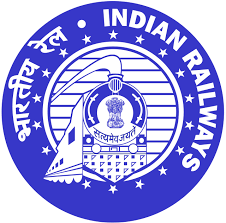
After completing a Diploma in Pharmacy, if you are confused about the best jobs to help you achieve your dreams. As we all know, after COVID-19, the need for healthcare providers has increased, raising job opportunities. Along with making your future in Pharmacy, you will also expand your knowledge in medicine, clinical services, and more. Once students complete a diploma in Pharmacy, they will get a way to start the rewarding field of diploma jobs. Moreover, you do not need to worry if you are looking for the best career options in this domain. A wide range of opportunities are available that will shape your career and provide a fruitful result. There are multiple jobs, and it depends on the student what they choose as their profession. We have provided detailed information in the passage below.
What will be the best job after a Diploma in Pharmacy?
Pharmacy is one of the most demanded professions, as the need for the specialist never ends. Many opportunities will open up once you complete the diploma in this field. Select the profession that will be suitable. If you are confused about the best job after a diploma, you do not need to worry. You will be enlightened with the accusation guidance in the article below.
Ambulatory care pharmacists:The job role of ambulatory care pharmacists is to manage patients, collaborate with physicians, and provide them with the proper medications. To choose a career in this field, you need to obtain the appropriate education in Pharmacy. Many well-known and leading hospitals are providing opportunities to freshers with good salaries.
Pharmacologist: The person who selects a career in pharmacology needs to study and investigate the effects of new and modified medications and maintain a record of the reactions to these medicines. They play a significant role in the pharmacy field as they make sure that the patients will get safe medications.
Pharmaceutical Scientist or Researcher:This is one of the best careers to choose after a diploma in Pharmacy. The role of a Pharmaceutical Scientist or Researcher is to research or discover new drugs and also identify what diseases they can cure. Once they prepare and test the medications and check appropriately that they are safe to use, they will provide them to healthcare providers to treat the patients.
Clinical research associate:One of the leading careers for students who have completed their diploma in Pharmacy. The duties of a Clinical research associate are to maintain and manage the data accumulated during trials. An associate also supervises clinical studies and coordinates with the healthcare provider.
After completing a Diploma in Pharmacy, you can also apply for Government jobsin India. There is an excellent future for Pharmacy, and you will receive success in this field. There are many good job options available to students. To make it more convenient, we have mentioned some of the best options in the read below.
Drug Inspector:If you go for a Drug Inspector as your profession, the job will be to monitor and check the quality of the drugs and ensure that the public will consume safe medications without any side effects. You will also get job security in this profession along with a good package.
Pharmacovigilance Officer: This profession is one of the foremost components of the healthcare industry. The person who becomes a Pharmacovigilance officer ensures that the pharmaceutical products that are provided to people are safe for use. Their work involves careful monitoring of drug safety, managing data related to adverse drug reactions, and implementing strategies to minimize possible hazards associated with drug use.
Hospital pharmacists:The job of Hospital pharmacists is to provide the required medications to the hospital or patients. They also give the appropriate quantity and ensure that the necessary drugs are in stock. Hospital pharmacists cooperate with pharmaceutical wholesale distributors to buy the appropriate drugs in the expected amounts.
Drug Administration: This is a government agency that promotes and protects public health. The person who works with them needs to review production aptitudes that make products like food, medicine, tobacco, and other items regulated by the agency.
After achieving a diploma in Pharmacy, you can opt for the career that is mentioned above. You will get the opportunity to enhance your skills.

An immense nexus of transportation is the Indian Railways, it is among the most significant employers in this country. A railway career offers stability, job security as well as an opportunity for national infrastructure development. One can increase their possibilities of getting a desirable position through proper preparation and plans even though there might be tough competition.
Grasping the Indian Railways Recruitment ProcessThe channels that the Railways mainly use to recruit are:
Railway Recruitment Boards (RRBs):There are 19 railway recruitment boards. These regional boards organize examinations for multiple non-gazetted positions, as Group D and Group C positions.
Union Public Service Commission (UPSC): UPSC holds the Indian Engineering Services (IES) exam for Group A positions.
Specify Your Ambition:Decide on the exact position you want regarding your qualifications and preferences.
Be Aware of the Eligibility Norms: Look up the age limit, education qualifications, and other prerequisites applicable to the post you want.
Get Acquainted with the Exam Pattern: Know well about the course outline, test structure and score distribution.
Collect Study Materials:Locate textbooks, learning resources and exercise papers that are pertinent.
Draft a Study Schedule: Create an organized study timetable encompassing all topics.
Practice Frequently: Work on previous years’ question papers and undertake mock exams to evaluate your advancement.
Time Control: Understand how to use your time wisely during the test.
RRB NTPC:Non-Technical Popular Category exam for different jobs.
RRB ALP:Assistant Loco Pilot exam.
RRB Group D:For beginner-level jobs in Indian Railways.
RRB JE: Junior Engineer exam.
Follow the Reports:Monitor recent alerts and alterations made by RRBs and UPSC.
Approach People to Learn: Think of joining tuition or e-learning classes for conducted assistance.
Stay Positive: Maintain a positive mindset and believe in your abilities.
Steer Clear of Rumours: Be careful with false information and turn to official sources instead.
Rehearse for Interviews: Answer likely interview questions during practice.
Physical Fitness:For certain posts, physical fitness tests may be required.
Medical Fitness:Ensure you meet the medical standards set by the Railways.
Reservation: Candidates from reserved categories may have certain benefits.
Corruption: Be aware of corruption and avoid any illegal practices.
Indian Railways has numerous types of jobs that come with their duties and obstacles. Some of the familiar ways to get into this line of work include:
Engineering Roles:During existing railway structures, civil engineers, mechanical engineers, electrical engineers or signal & telecommunication engineers play a major role.
Operational Roles:Train drivers, guards, station masters and commercial staff are responsible for the seamless functioning of trains as well as managing stations.
Administrative Roles:Handling administrative roles are clerical people, account officers and human resource professionals.
Technical Roles: Technicians have specializations in many fields including electrical, mechanical and signal maintenance.
Railways provide a steady career trajectory including chances for advancement and development. Regular promotions are determined by factors such as seniority, skills demonstrated through performance appraisals and educational qualifications. Employees can also benefit from attending programs that facilitate learning in various fields.
Benefits of Working in Indian Railways:Job Security: Railways jobsare considered the most secure jobs in terms of job security.
Pensions and other specific benefits: Employees have a right to pension along with some additional advantages such as medical care and house accommodations.
Work-Life Balance:The Railways frequently offer a fair work-life balance.
Job Competition:There can be severe competition amongst people seeking jobs in the Railways.
Job Changes: Transferring to different locations may be required from the employees at one time or another.
Red tape: Occasionally, the Railways might be caught up in red tape that affects its decision-making processes as well as the efficiency with which it operates.
Getting a job in Indian Railways is the best decision you can ever make for your career. You need to know everything about the recruitment process if you want to increase your chances of getting it, do thorough preparations and remain focused at all times. Yes, consistency and hard work will indeed take you far on this journey towards making your dreams come true.

In 2024, banking is still the backbone of the world economy and offers very many opportunities for growth in careers. It is not only seen as one’s job by some but also more of a field which has different aspects. A career in the banking sector might sound like a thing that you would love to do but there are enough reasons to consider it seriously as a career choice. The banking sector has always been said as the backbone of the world economy and offers countless opportunities for development in careers. Government Jobs in India is not just about having employment; rather, it is an ever-changing forum with its prospects and diversification. If you are thinking about pursuing a profession in the banking industry, here are reasons why this area should be your home professionally.
1. Diverse Career Options:On the other hand, the banking sector covers a wide range of occupations including customer care, investments management, risk management as well as financial analyses. This diversity implies that people with different interests and skill sets can be accommodated in this industry. The banking jobs have many openings for those who want to grow their careers as financial analysts, loan officers, compliance officers or branch managers.
2. Stability and Job Security:In comparison to other sectors, banking jobshave always stood out for their stability. Banks are important components of the financial system and their services are perpetually needed. Stability results in job security for employees since banks offer them a stable work environment characterized by clear career paths.
In addition, banks are perceived to be more resistant against economic downturns compared with other sectors because they provide a variety of services and have huge amounts of money saved. That is why people looking for eventual security find the banking profession so interesting.
3. Salary Packages Which Cause Competition:Often competitive salaries and nice benefits come with a career in banking. Starting pay for entry-level jobs like bank tellers or customer care representatives is decent but it can rise steeply together with experience and higher positions. Moreover, investment banking or financial analysis plays an important role in offering very attractive remunerations.
4. Professional Development OpportunitiesEmployee growth is highly regarded in the banking industry. There are various well-organized career advancement plans, mentorship schemes as well as educational and certification options in most banks. Workers are encouraged to enrol on higher learning, for instance getting an MBA or pursuing specialized finance certifications like CFA or CPA to upgrade skills and promote career prospects.
Furthermore, since financial technology (fintech) keeps on changing at a fast pace, as well as regulatory settings in the banking field, it calls for employees to always be in the know; hence an atmosphere of continued learning and adaptation is created.
5. Global Access and MovementA global industry with a notable presence in nearly all nations, banking has much to offer in terms of international careers. This worldwide access provides various opportunities for working overseas or with transnational clients to interested people. Most of the large banks have branches located in major cities across the globe where employees can increase their professional networks beyond borders and gain international experience.
Also, the skills and experience acquired from the banking industry are transferable to other sectors as well, providing professionals with an option to shift their careers into different positions or fields if they wish to.
6. Impact on the Financial System and Community:Those engaged in banking become critical players in determining economic fortunes and influencing societal growth patterns. Banks enable loaning and investment hence leading to an increased number of businesses, infrastructural development and personal financial viability. In addition, through mortgage loan provision, startup funding and large project investments bankers directly contribute towards community advancement as well as economic growth. This professional focus offers its participants an opportunity to witness first-hand how their activities affect people’s daily lives in very practical ways.
7. Original and Technologically Oriented:The banking jobs are leading the way in technological innovations. Banks are continually incorporating innovative technologies from online banking and mobile applications to blockchain and artificial intelligence to enhance their services and operations. For tech-savvy individuals, this aspect of banking presents exciting opportunities to engage in avant-garde projects and participate in a revolutionary sector.
8. Establishing a Strong Professional Network.Bankers usually interact with various stakeholders like customers, investors, regulators and other similar professionals in the industry which promotes the development of strong professional networks that are significant for career progression and self-growth. Thus, there are numerous ways to meet other professionals through conferences, seminars as well as professional bodies.